by Rabbi Jeffrey Adler
We often find that, despite our desire for a smooth, untroubled, life, that challenges appear that ruffle our feathers and cause us to wonder whether God really is with us. Such an occasion occurred during the life and reign of the great and godly Jewish king, Jehoshaphat. This man, whose name means “Adonai judges”, had a zeal for the Lord rarely seen among the kings of Judah, and never seen among the kings of the northern tribes of Israel. He is described in the text as doing what is right in the Lord’s eyes, seeking to turn his people away from their idols and back toward the Living God.
In the midst of this campaign toward spiritual revival, in II Chronicles 20, Judah was invaded by a huge army of Moabites, Ammonites, “Maonim” (a national group whose identity is unclear, but, are believed by many to have been from other Ammonite tribes), and, as stated later in the narrative, Edomites (Mount Seir). They struck with suddenness and force.
Jehoshaphat’s reaction was to call a national assembly to wait on God and seek His counsel. The entire nation assembled at Jerusalem: men, women, children, including infants.
For most of my life, I believed that Jehoshaphat was afraid because of the immense size of the invading forces and his lack of a sufficient number of troops to confront them. However, some years ago, my attention was drawn to an accounting of Jehoshaphat’s standing army at Jerusalem listed in II Chronicles 17, beginning in the 14th verse. When the totals of listed divisions are added up, the number comes to 1,160,000 men, besides those garrisoned around the country. Jehoshaphat had a huge standing army, besides the reserves he could call to active duty, more than enough for the task.
The question arises then, why was the king so concerned? From the general context, it appears that, since the nation had been so sinful and idolatrous, this war could have been a judgement from Adonai. (Look again at the meaning of the king’s name, a constant reminder of accountability before God.). If the Lord were determined to judge, to punish, Judah, 10 million men would not have been enough. God had frequently disciplined His people in their history via surrounding peoples such as the Ammonites, Moabites, Midianites, Philistines, etcetera. Could this be such an occasion? Jehoshaphat was humble and wise enough to find out the truth.
Hence, he called the great assembly of the people to stand before the Lord and listen for His voice. It must have been quite a scene as Jerusalem’s streets and surrounding hills and valleys were blanketed by wall-to-wall people. In the words of chapter 20, verse 13, “All Judah was standing before Adonai with their infants, their wives, and, their children.” They must have been waiting with bated breath to see what Adonai might say and whether He might respond to their national emergency.
Then, wonderfully, Ruach Adonai, the Spirit of the Lord, came upon a man named Jahaziel. By the empowerment of the Spirit, he delivered a stirring, multi-point prophecy:
- Do not be afraid. The negative “al” is used here instead of “lo” because al refers to the here and now; each time there is a stimulus to fear, one has to choose to resist it in each occurrence.
- Do not be dismayed, really conveying the sense of do not go to pieces or panic. Again, the negative “al” is used here.
- The battle is not yours. We need not take ownership of the crisis.
- The battle is God’s. He can handle it better than we.
- God’s intelligence service told where the enemy could be found.
- You will not fight this battle.
- You will stand by and see that Yeshuat Adonai (Yeshuat is the construct form of Yeshua, Jesus’ Hebrew Name.) is with you.
- Again, do not be afraid or panicked.
- Face the enemy.
- “Adonai immakem”, the Lord is with you.
With this assurance of the Lord’s Presence and help, Judah marched out to face the invaders. As they watched from the heights, the enemy nations turned on each other and destroyed each other until they were annihilated. God had allowed Judah an opportunity to see His grace and loving power. Might we have opportunity for the same thing?
Rabbi Jeffrey Adler is president of the Board of HaShomer and also Rabbi of Sha’arey Yeshua in Indianapolis, IN.
